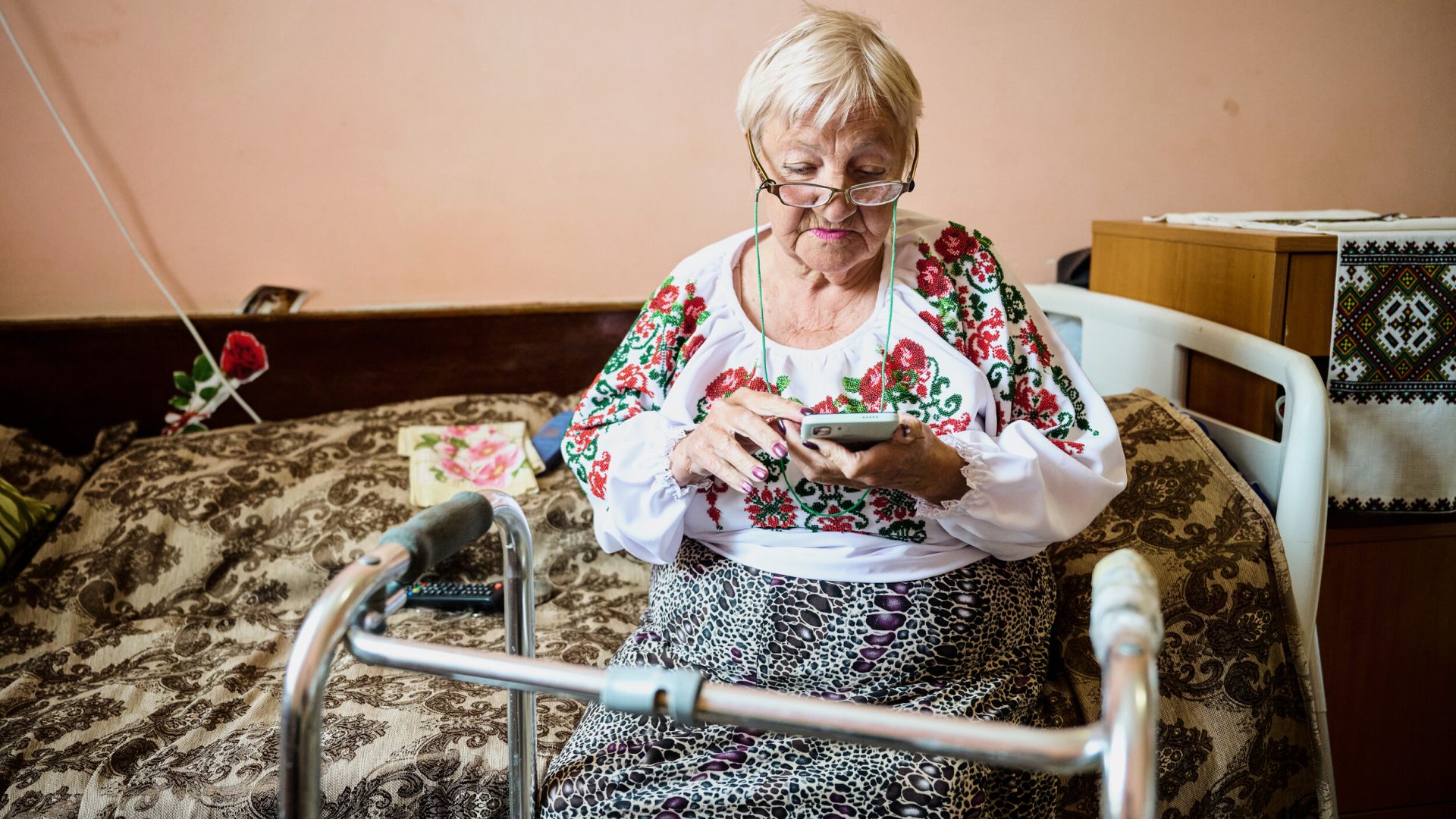Three years into the war, Ukraine remains the world’s oldest humanitarian crisis in terms of the demographics most affected. With 9 million older people making up 25% of the population, they have suffered disproportionately, accounting for 50% of civilian deaths in 2024, yet just one-third receive humanitarian aid.
The situation is worsening.
- 32% now lack safe shelter – up 11% since 2022.
- Housing is deteriorating; 2 in 3 live in poor conditions needing urgent repair.
- Mental health is collapsing under the weight of isolation, poverty, and fear — 63% say their mental health is worse than at the war’s start.
Barriers to aid are steep:
Older people cannot easily flee, queue for hours, or navigate digital systems to access help. Over a quarter live with disabilities that make even basic survival tasks harder — many go without vital medicine, food, or hygiene items.
Older women face the harshest impact:
- Nearly half live alone,
- 68% say pensions don’t meet basic needs,
- Many skip meals, share medicine, or live in freezing homes.
Despite these realities, older Ukrainians continue to show resilience – volunteering, singing in choirs, running small businesses – but resilience cannot replace rights.
The report calls for urgent action:
- Deliver aid directly to homes,
- Set up mobile health teams,
- Make information accessible without apps or bureaucracy,
- Prioritise older people in humanitarian planning and funding.
Older Ukrainians helped build their country. The world must now act to ensure they are not left to endure its collapse alone.

